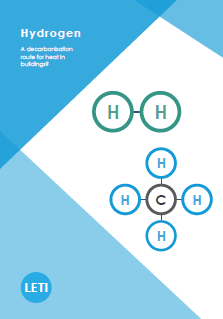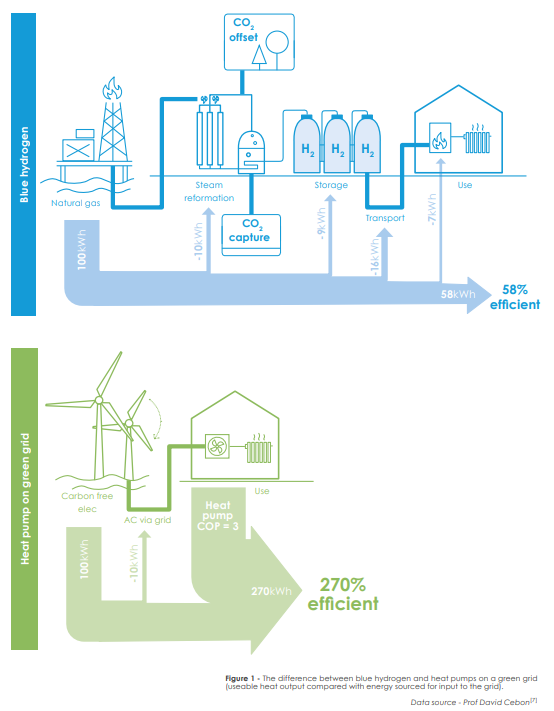Hydrogen Paper

LETI, the London Energy Transformation Initiative, has investigated whether repurposing the gas grid to distribute hydrogen gas for heating makes sense.
Hydrogen fuel is often touted as a viable solution to assist in meeting UK net zero carbon targets. LETI has therefore sought to investigate this further and to examine to what extent hydrogen is likely to be used, either in part or in full, to accompany decarbonisation of the electricity grid.
LETI has just published its report on Hydrogen – a decarbonisation route for heat in buildings?
The report is available from LETI's website.
The brief report is recommended reading. It is well argued with clear illustrations and explains why LETI is sceptical about the practicality, efficiency and economics of burning hydrogen to heat buildings.
For those short on time, you may want to jump to LETI's conclusions:
- "We have found that the public discourse on hydrogen appears severely unbalanced, with the gas supply industry in particular over-selling "green-gas" to policy makers in order to protect their interests".
- "When blue hydrogen, supplied via the gas network, is compared to the use of heat pumps there is a stark difference in efficiencies".
- "It is unlikely that zero carbon hydrogen supplied via a re-purposed gas mains network will be available for the vast majority of buildings, for the foreseeable future".
The diagram below contrasts the limited efficiency of converting natural gas to hydrogen and distributing it through the gas grid (at 58%), with using green electricity to heat homes via air source heat pumps (at 270%).

It is worth noting that this route will still not yield a zero carbon system – unlike the heat pump route which is 100% zero carbon (and 100% zero NOx).
A well designed ground source heat pump system will yield a significantly higher efficiency than the air source system illustrated here.

